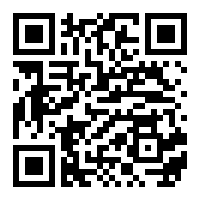Face and address terms: A case of some wedding invitation cards
Keywords:
Address terms, culture, face-threatening acts, Ghana, power, wedding invitation cardsAbstract
This study investigated whether or not self-address terms used on wedding invitation cards in Sunyani, Ghana, can be considered as face-threatening. Eelen’s (2014) critique of politeness theory served as the conceptual lenses for the study. Using a longitudinal study approach and a snowballing data collection procedure, 442 wedding invitations cards were collected within a twelve-month period. Findings reveal five categories of self-address terms used on wedding invitation cards, namely, religious, academic, professional, honorific and affectionate. Moreover, while some respondents submit that it is necessary for couples to use their titles as address terms on their wedding invitation cards and that doing so is not face-threatening, other respondents argue that the use of such address terms is tantamount to flaunting one’s accomplishments and is definitely a face-threatening act that must be avoided. Largely, respondents within the University of Energy and Natural Resources community have the former view while those outside the University community hold the latter view. The implication of this study, therefore, is that context matters and affects the meaning that is assigned to address terms and such contexts must be taken into consideration should couples choose to use self-address terms on their wedding invitation cards.
References
Abugharsa, A. B. (2014). Terms of address in Lybian Arabic compared to other Arabic varieties. Oklahoma State University, 1-13.
Afzali, K. (2011). The address forms of spouses in different social strata in Iran and its sociolinguistic implications. International Journal of Linguistics, 3(1), 10.
Akindele, D. F. (2013). Sesotho address forms. Linguistik online, 34(2), 3-15.
Al Momani, K. R., & Alrefae, D. F. (2010). A Socio–Textual Analysis of Written Wedding Invitation in Jordanian Society. LSP Journal-Language for special purposes, professional communication, knowledge management and cognition, 1(1), 61-80.
Aliakbari, M., & Toni, A. (2013). The realization of address terms in modern Persian in Iran: A sociolinguistic study. Linguistik online, 35(3).
Al-Zubaidi, N. A. (2017). Wedding Invitation Genre: Communicating Sociocultural Identities of Iraqi Society. Lublin Studies in Modern Languages and Literature, 41(1), 129-155.
Braun, F. (2012). Terms of address: Problems of patterns and usage in various languages and cultures (Vol. 50). Walter de Gruyter.
Clayman, S. E. (2010). Address terms in the service of other actions: The case of news interview talk. Discourse & Communication, 4(2), 161-183.
Dion, K. L. (1987). What's in a title? The Ms. stereotype and images of women's titles of address. Psychology of Women Quarterly, 11(1), 21-36.
Eelen, G. (2014). A Critique of Politeness Theory: Volume 1 (Vol. 1). Routledge.
Faramarzi, S., Elekaei, A., & Tabrizi, H. H. (2015). Genre-based discourse analysis of wedding invitation cards in Iran. Journal of Language Teaching and Research, 6(3), 662-668.
Hua, Z. (2010). Language socialization and interculturality: Address terms in intergenerational talk in Chinese diasporic families. Language and Intercultural Communication, 10(3),189-205.
Huang, X., & Sultan, R. (2014). Terms of Address in the Chinese Business Enterprise. Advances in Language and Literary Studies, 5(3), 179-190.
Lehtimaja, I. (2011). Teacher-oriented address terms in students’ reproach turns. Linguistics and Education, 22(4), 348-363.
Rendle-Short, J. (2007). “Catherine, you’re wasting your time”: Address terms within the Australian political interview. Journal of Pragmatics, 39(9), 1503-1525.
Sawalmeh, M. (2015). Ceremonial Arabic writing: A genre-based investigation of wedding invitation cards and obituary announcements in Jordanian society (Doctoral dissertation, University of Huddersfield).
Sawalmeh, M. H. M. (2014). A sociolinguistic study of Muslim and Christian wedding invitation genre in the Jordanian society. Journal of Advances in Linguistics, 5(1), 448-462.
Sharif, M., & Yarmohammadi, L. (2013). On the Persian wedding invitation genre. SAGE Open, 3(3), 1-9.
Wardhaugh, R., (2010). An introduction to sociolinguistics. Fabulous Printers Pre Ltd, Singapore.
Youssef, A. (2012). Study of request strategies employed by Libyan and Malay postgraduate students at USM. International Journal of Learning and Development, 2(2), 144-151.

Downloads
Published
License
This open-access article is distributed under a Creative Commons Attribution (CC-BY) 4.0 license.
You are free to: Share — copy and redistribute the material in any medium or format. Adapt — remix, transform, and build upon the material for any purpose, even commercially. The licensor cannot revoke these freedoms as long as you follow the license terms. Under the following terms: Attribution — You must give appropriate credit, provide a link to the license, and indicate if changes were made. You may do so in any reasonable manner, but not in any way that suggests the licensor endorses you or your use. No additional restrictions You may not apply legal terms or technological measures that legally restrict others from doing anything the license permits.






